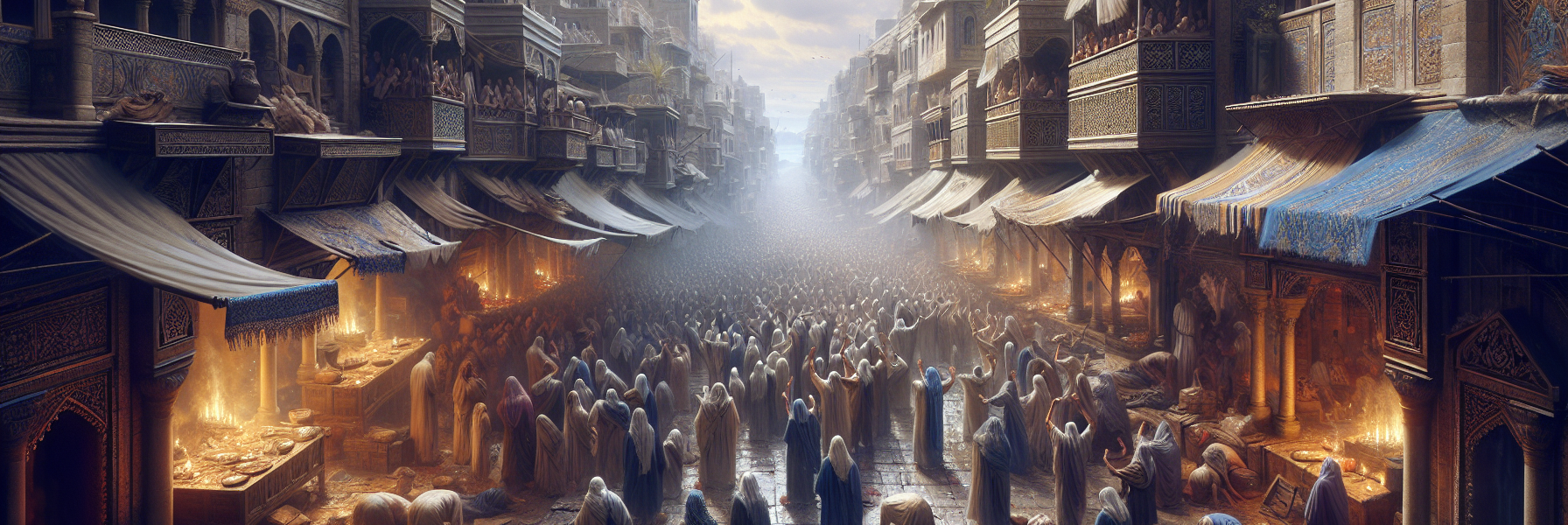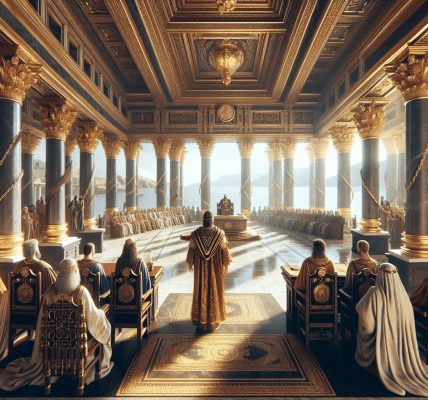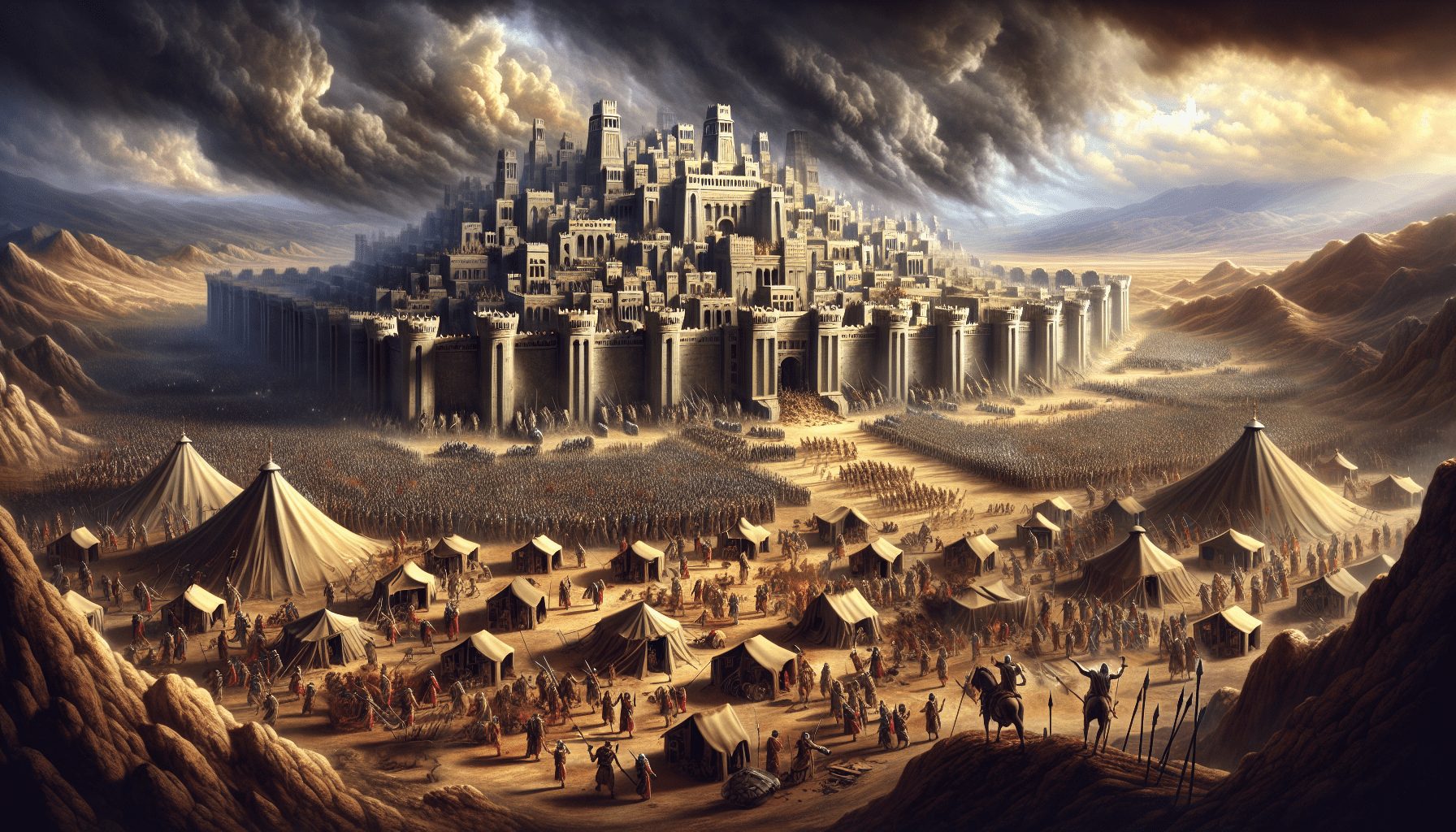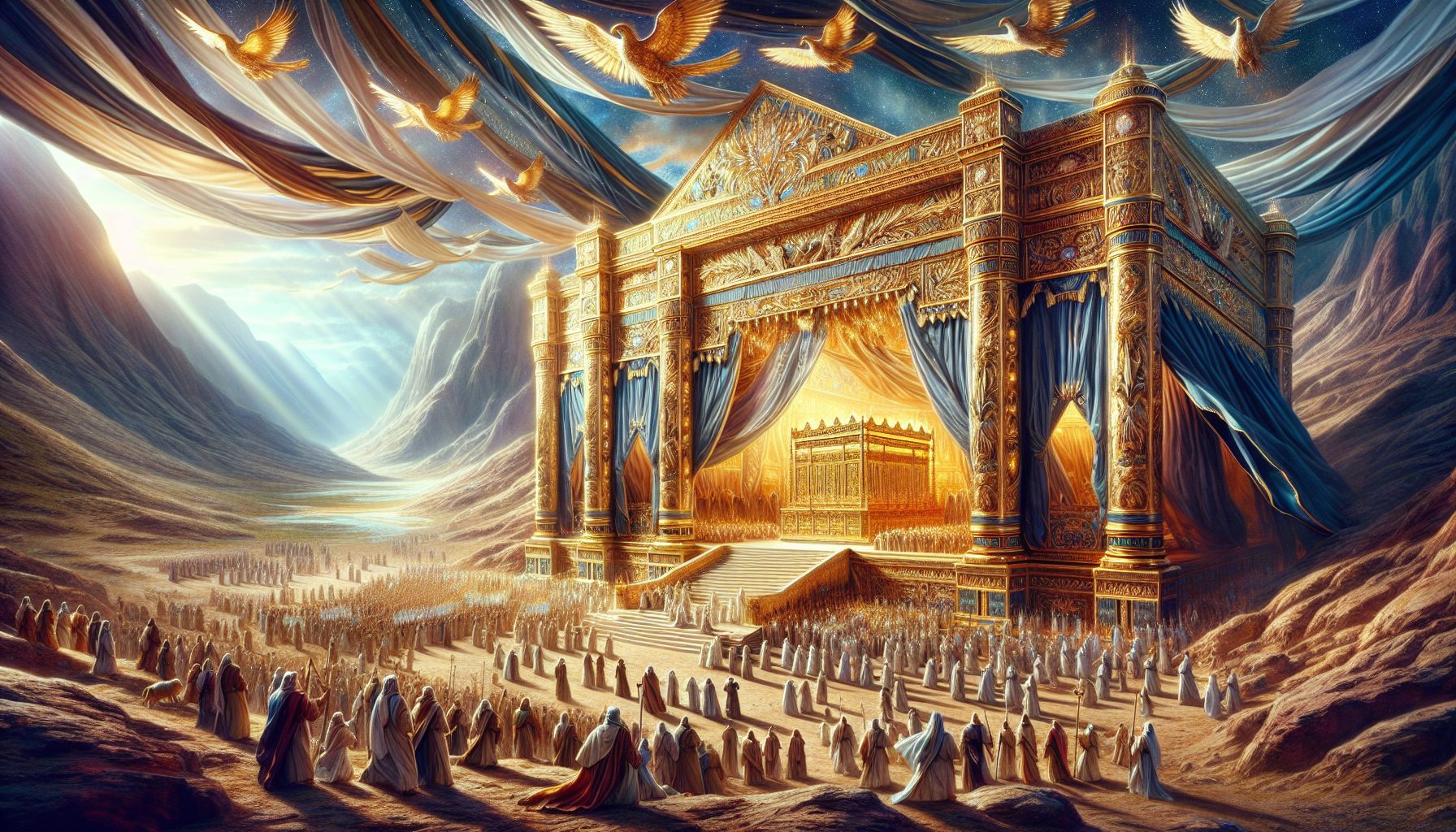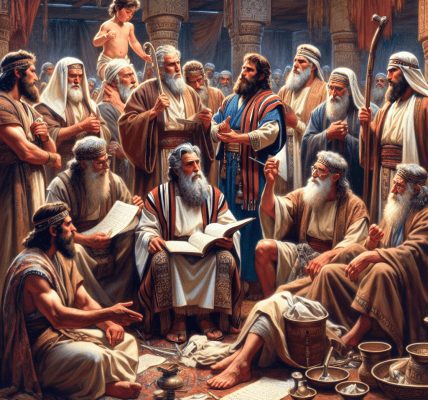**The True Fast: A Story of Redemption and Justice**
In the bustling city of Jerusalem, the people gathered for what they believed was a sacred day of fasting. The streets were filled with the sounds of merchants closing their shops, the murmurs of prayers, and the occasional wail of the desperate. The air was thick with the scent of burnt offerings, yet beneath the solemn veneer, something was amiss.
The people bowed their heads, their faces smeared with ashes, their garments torn in a show of piety. They lifted their voices to Heaven, crying, *”Why have we fasted, and You do not see? Why have we humbled ourselves, and You take no notice?”*
But the Lord, who sees beyond outward displays, looked into their hearts.
### **The Lord’s Rebuke**
One evening, as the sun dipped below the horizon, casting long shadows over the city, a prophet named Elihu—a man known for his unwavering devotion—stood in the marketplace. The Spirit of the Lord came upon him, and he raised his voice above the noise of the crowd.
*”Behold, in the day of your fast, you seek your own pleasure! You exploit your workers! You fast only to quarrel and fight, to strike with a wicked fist!”*
The people stopped, some in anger, others in uneasy silence. A wealthy merchant, Jotham, scoffed. *”We observe the fast as Moses commanded! Who are you to judge us?”*
Elihu turned to him, his eyes burning with divine fire. *”Is this the fast I have chosen? A day for a man to afflict his soul? To bow his head like a reed and spread sackcloth and ashes? Is this what you call acceptable to the Lord?”*
### **The Fast God Desires**
The prophet’s voice grew stronger, echoing through the streets.
*”Is not this the fast that I have chosen: to loose the bonds of wickedness, to undo the heavy burdens, to let the oppressed go free, and to break every yoke? Is it not to share your bread with the hungry, to bring the poor who are cast out into your house? When you see the naked, to cover him, and not to hide yourself from your own flesh?”*
A woman named Miriam, who had been listening from the edge of the crowd, felt her heart stir. She was not wealthy, but she had seen the suffering around her—the beggars at the city gates, the widows with hollow eyes, the children scavenging for scraps.
### **A Change of Heart**
That night, Miriam could not sleep. The words of the prophet haunted her. At dawn, she gathered what little bread and oil she had and sought out a beggar named Ezra, who sat each day near the temple, ignored by the pious passersby.
When she placed the bread in his hands, his eyes filled with tears. *”Why do you see me, when others turn away?”*
Miriam smiled gently. *”Because the Lord has opened my eyes.”*
Meanwhile, Jotham, the wealthy merchant, wrestled with guilt. He had always given his tithes, observed the holy days, yet his laborers toiled under harsh conditions, their wages often withheld. That morning, he called his steward. *”From this day forward, pay the workers fairly. And bring me the list of debts owed by the poor—I will cancel them.”*
### **The Promise of Restoration**
As the people began to act—feeding the hungry, sheltering the homeless, defending the oppressed—a change came over Jerusalem. The Lord spoke again through Elihu:
*”Then your light shall break forth like the dawn, and your healing shall spring forth speedily. Your righteousness shall go before you, and the glory of the Lord shall be your rear guard. Then you shall call, and the Lord will answer; you shall cry, and He will say, ‘Here I am.’”*
And so it was. The city, once divided by greed and hypocrisy, began to flourish in true righteousness. The people understood at last: God did not desire empty rituals, but hearts transformed by love and justice.
For when they cared for the least among them, they were truly worshipping the Lord. And in their obedience, they found the blessings of His presence, brighter than the noonday sun.
